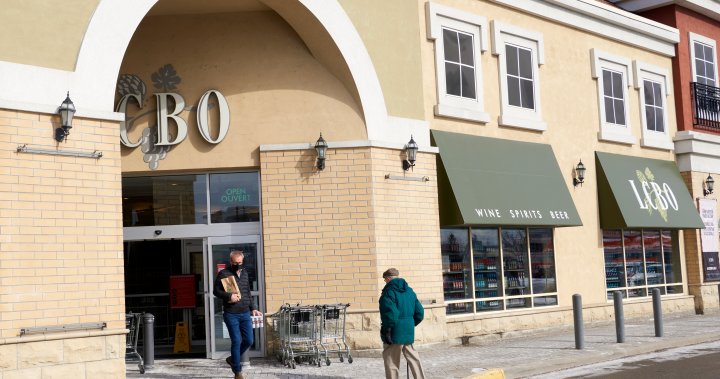Premier Doug Ford has expressed his concern over the LCBO’s decision to stop providing paper bags for customers’ alcohol purchases. In a letter dated April 7, Ford urged the LCBO to reverse this decision, citing the added expense for customers at a time when many Ontario families are already struggling financially. The LCBO initially announced the phasing out of paper bags in April of the previous year, with the official end date being September 5, 2023. The company believed this move would have a positive environmental impact by saving trees and reducing waste in landfills.
However, Ford pointed out that the absence of paper bags has led to customers openly carrying alcohol in public when leaving LCBO stores. He emphasized the importance of government entities, including crown corporations like the LCBO, being mindful of costs and avoiding unnecessary burdens on individuals. The LCBO currently provides eight-pack carriers and boxes when available, as well as reusable bags for purchase. Ford highlighted the recyclable nature of paper bags as an alternative to single-use plastic, which was one of the reasons why the LCBO initially adopted them.
The decision to eliminate paper bags at the LCBO has sparked controversy, with Ford’s letter adding to the ongoing debate. Customers have raised concerns about the inconvenience of having to find alternative ways to transport their alcohol purchases. While the environmental benefits of reducing paper waste are significant, the practical implications for customers cannot be ignored. The call for a reversal of this decision reflects the broader debate around balancing environmental sustainability with consumer convenience and affordability.
The LCBO’s move to phase out paper bags aligns with a broader trend towards reducing single-use plastics and promoting more sustainable packaging options. Many retailers and governments are exploring ways to minimize waste and encourage environmentally friendly practices among consumers. However, the challenges associated with implementing such changes, including potential impacts on customer experience and convenience, must be carefully considered. Ford’s letter highlights the need for a balanced approach that takes into account both environmental concerns and the practical needs of consumers.
As discussions around environmental sustainability continue to evolve, it is crucial for government agencies and corporations to engage with stakeholders and solicit feedback on proposed changes. The LCBO’s decision to eliminate paper bags serves as a case study in navigating the complex trade-offs between environmental conservation and consumer convenience. By addressing concerns raised by Premier Doug Ford and other stakeholders, the LCBO may find opportunities to refine its policies and better align them with the needs and expectations of its customers. Ultimately, the goal should be to find innovative solutions that promote sustainability while also ensuring a positive shopping experience for consumers.


